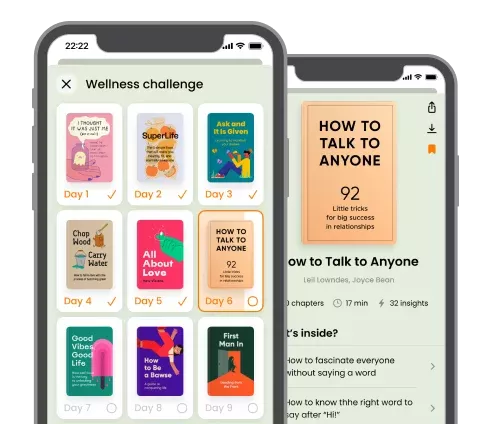18 Best World History Books
Discover a vast collection of world history books, exploring ancient civilizations, wars, revolutions, and more. Expand your knowledge today!
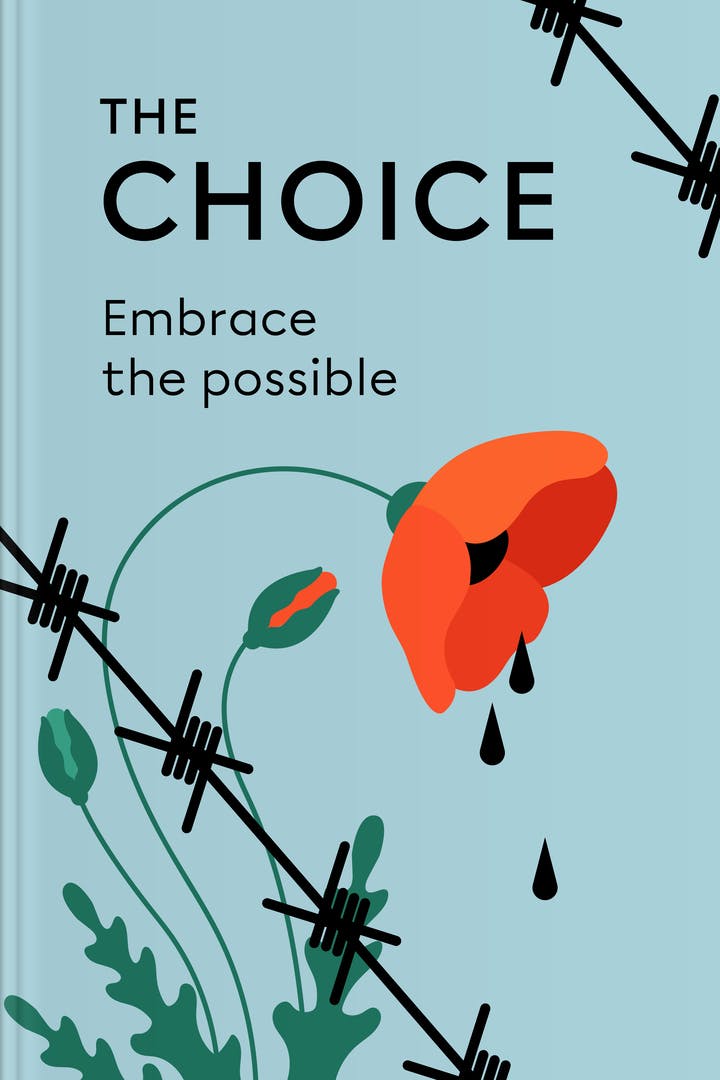 1
1The Choice
by Dr. Edith Eva Eger
What is The Choice about?
"The Choice: Embrace The Possible" is a powerful memoir that delves into the extraordinary life of Dr. Edith Eva Eger. Through her personal experiences as a Holocaust survivor, psychologist, and healer, Eger explores the profound impact of trauma and the transformative power of choice. With resilience and wisdom, she shares her journey of self-discovery, offering invaluable lessons on finding freedom, healing, and embracing the limitless possibilities that life has to offer.
Who should read The Choice
Individuals seeking inspiration and guidance to overcome life's challenges.
Survivors of trauma and those in need of healing.
Anyone interested in the power of resilience and personal growth.
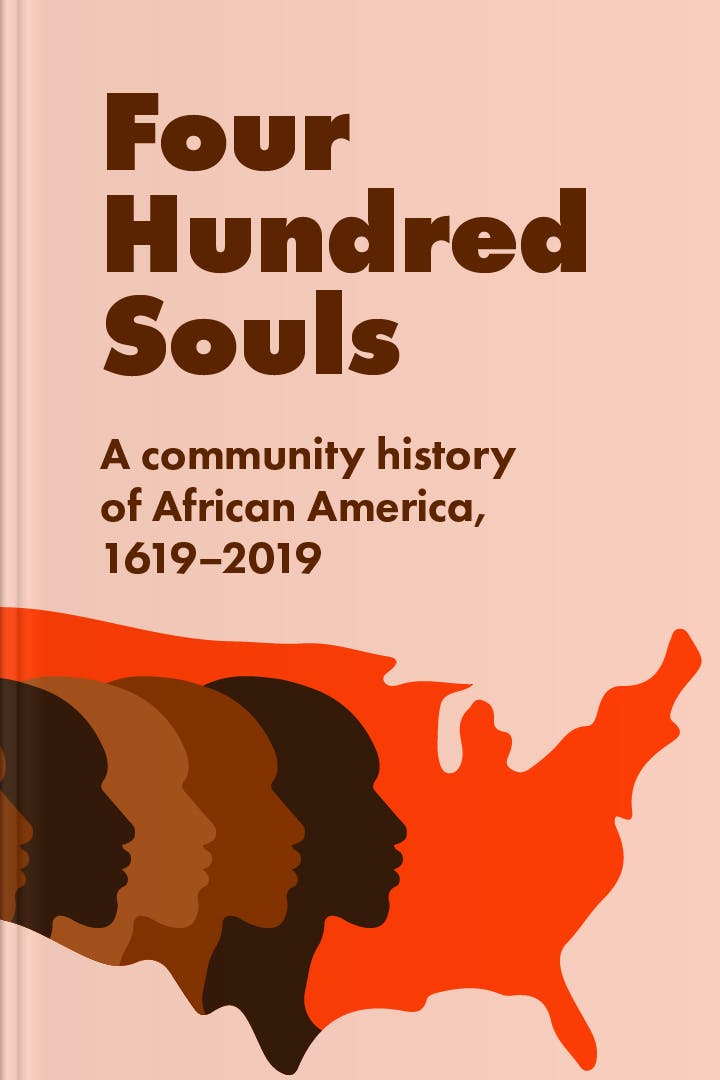 2
2Four Hundred Souls
by Ibram X. Kendi and Keisha N. Blain
What is Four Hundred Souls about?
"Four Hundred Souls" is a comprehensive community history that spans four centuries of African American experiences, from 1619 to 2019. Written by Ibram X. Kendi and Keisha N. Blain, this book brings together 90 different writers who each contribute a unique essay, creating a collective narrative that explores the struggles, triumphs, and contributions of African Americans throughout American history. It offers a powerful and enlightening perspective on the African American community's journey towards freedom, equality, and justice.
Who should read Four Hundred Souls
History enthusiasts seeking a comprehensive account of African American experiences.
Students and scholars studying the evolution of African American communities.
Individuals interested in understanding the collective resilience and triumphs of African Americans.
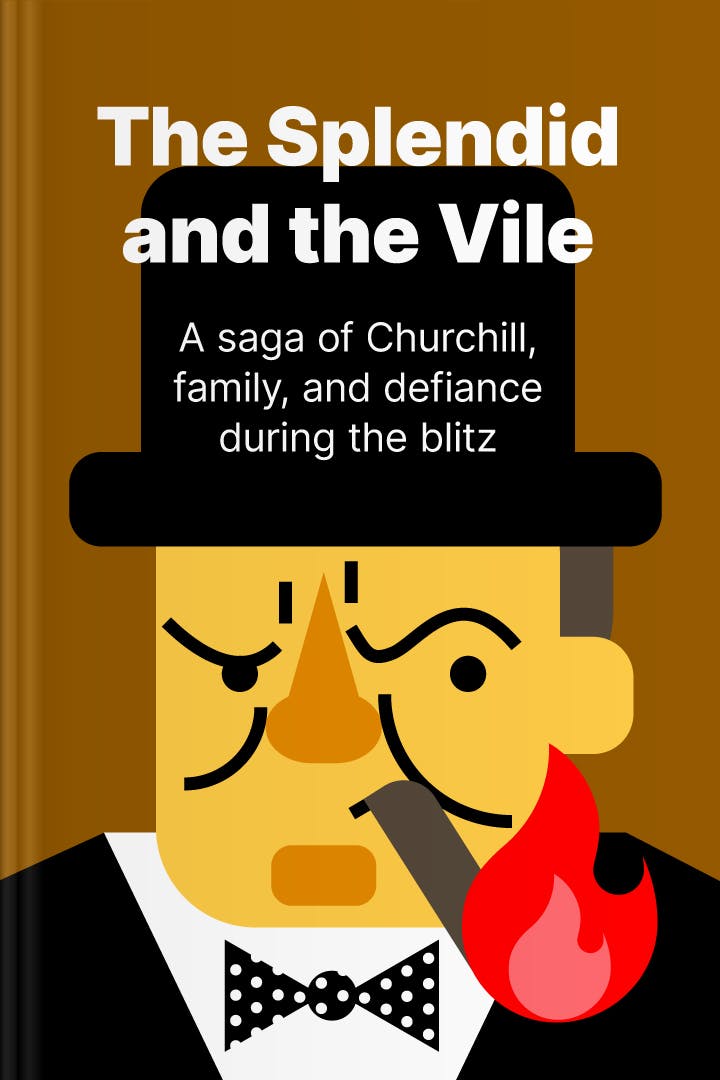 3
3The Splendid and the Vile
by Erik Larson
What is The Splendid and the Vile about?
"The Splendid and the Vile" by Erik Larson is a captivating historical account that delves into the life of Winston Churchill and his family during the tumultuous period of the Blitz in World War II. Through meticulous research and vivid storytelling, Larson paints a vivid picture of Churchill's leadership, the resilience of the British people, and the personal sacrifices made by the Churchill family in their unwavering defiance against Nazi Germany.
Who should read The Splendid and the Vile
History enthusiasts seeking a gripping account of Churchill's leadership during WWII.
Fans of biographies interested in the personal life of Winston Churchill.
Those fascinated by stories of resilience and defiance in the face of adversity.
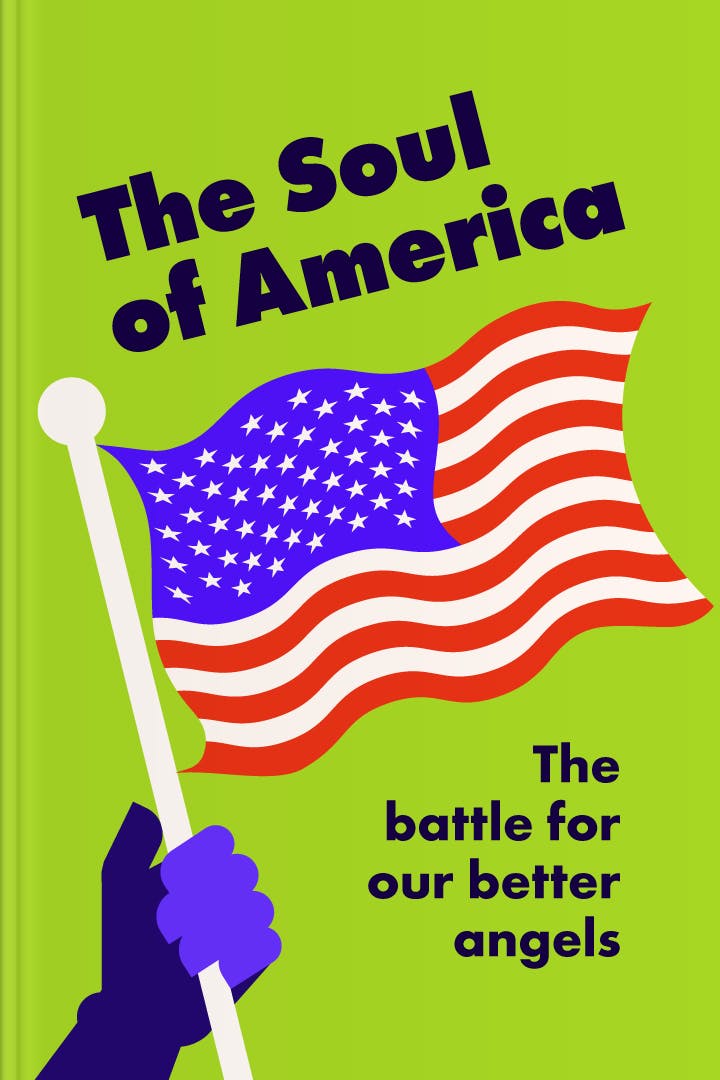 4
4The Soul of America
by Jon Meacham
What is The Soul of America about?
"The Soul of America: The Battle for Our Better Angels" by Jon Meacham explores pivotal moments in American history where the nation faced challenges to its core values and principles. Through a compelling narrative, Meacham delves into the struggles and triumphs that shaped the country, highlighting the resilience and resilience of the American spirit. This thought-provoking book serves as a reminder of the ongoing battle for progress and the importance of embracing our shared values.
Who should read The Soul of America
History enthusiasts seeking a deeper understanding of America's past.
Citizens concerned about the current state of American democracy.
Individuals interested in exploring the power of empathy and unity.
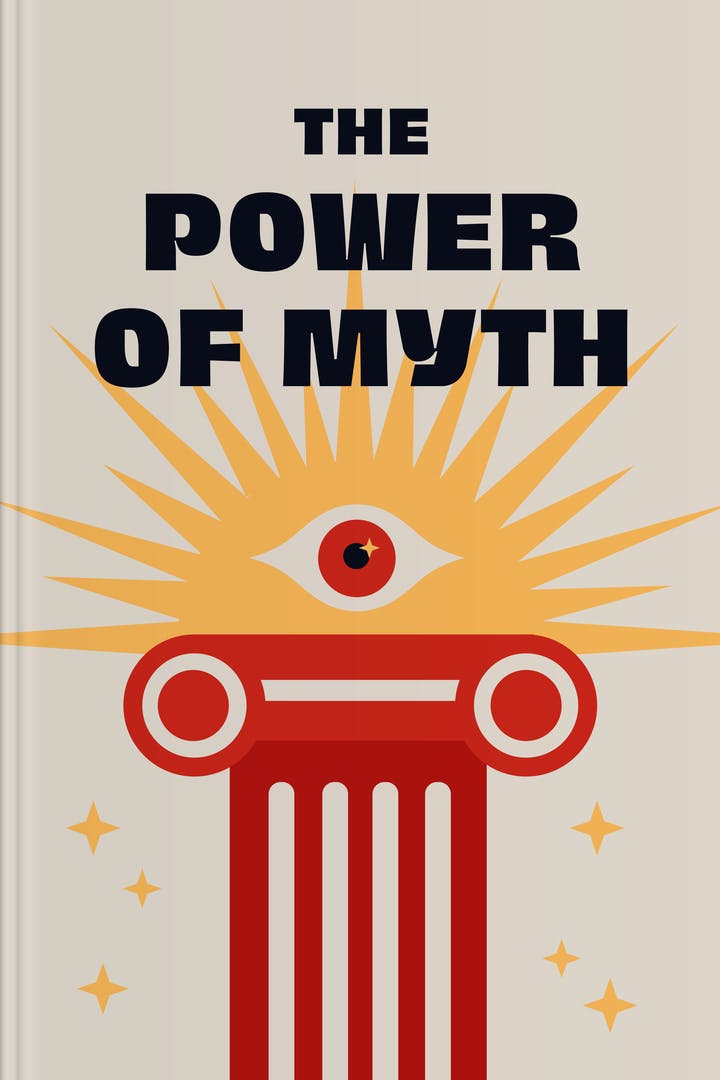 5
5The Power of Myth
by Joseph Campbell, Bill Moyers
What is The Power of Myth about?
"The Power of Myth" explores the universal themes and symbols found in myths across different cultures, revealing their relevance in our modern lives. Through a series of conversations between renowned mythologist Joseph Campbell and journalist Bill Moyers, this book delves into the power of storytelling, the hero's journey, and the role of mythology in shaping our understanding of the world. It offers profound insights into the human experience and the enduring significance of myth in our collective consciousness.
Who should read The Power of Myth
Mythology enthusiasts seeking a deeper understanding of ancient stories.
Writers and storytellers looking to explore the universal themes in myths.
Individuals interested in the intersection of spirituality and mythology.
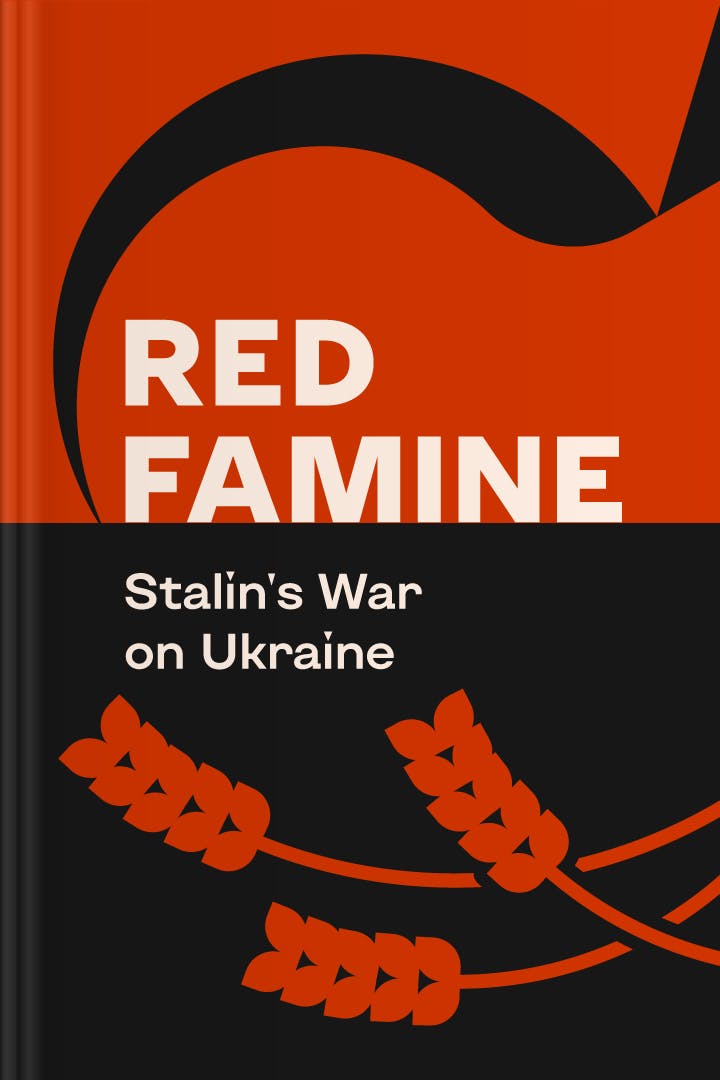 6
6Red Famine
by Anne Applebaum
What is Red Famine about?
"Red Famine: Stalin's War on Ukraine" by Anne Applebaum delves into the devastating man-made famine that occurred in Ukraine during the 1930s. Through meticulous research and firsthand accounts, Applebaum exposes Stalin's deliberate policies that led to the deaths of millions of Ukrainians. This gripping narrative sheds light on the political motivations, agricultural collectivization, and the tragic consequences of this forgotten chapter in history, offering a comprehensive understanding of the Ukrainian famine under Soviet rule.
Who should read Red Famine
History enthusiasts interested in understanding Stalin's devastating impact on Ukraine.
Scholars and researchers studying Soviet history and totalitarian regimes.
Individuals seeking to learn about lesser-known atrocities of the 20th century.
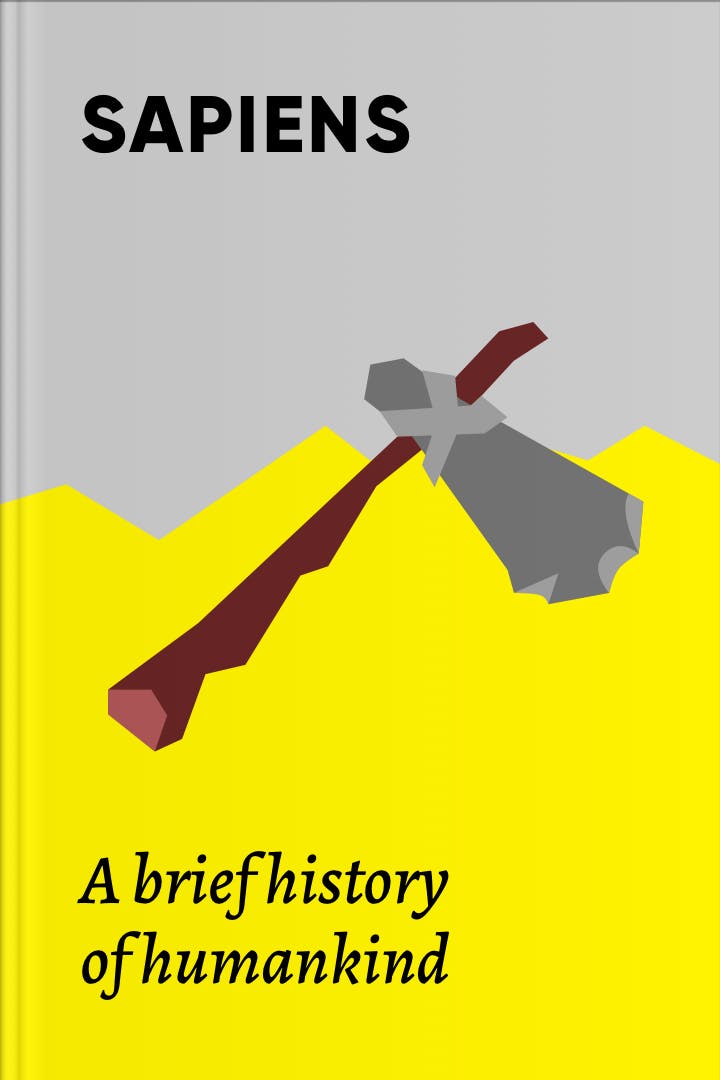 7
7Sapiens
by Yuval Noah Harari
What is Sapiens about?
In this thought-provoking book, the author takes readers on a captivating journey through the history of humankind. From the emergence of Homo sapiens to the present day, Harari explores the key milestones that shaped our species, including the agricultural revolution, the rise of empires, and the impact of technology. With a blend of science, anthropology, and philosophy, "Sapiens" offers a compelling and insightful perspective on the past, present, and future of humanity.
Who should read Sapiens
History enthusiasts seeking a comprehensive understanding of human evolution.
Philosophers and thinkers exploring the origins of human existence.
Students and academics studying anthropology and the development of civilizations.
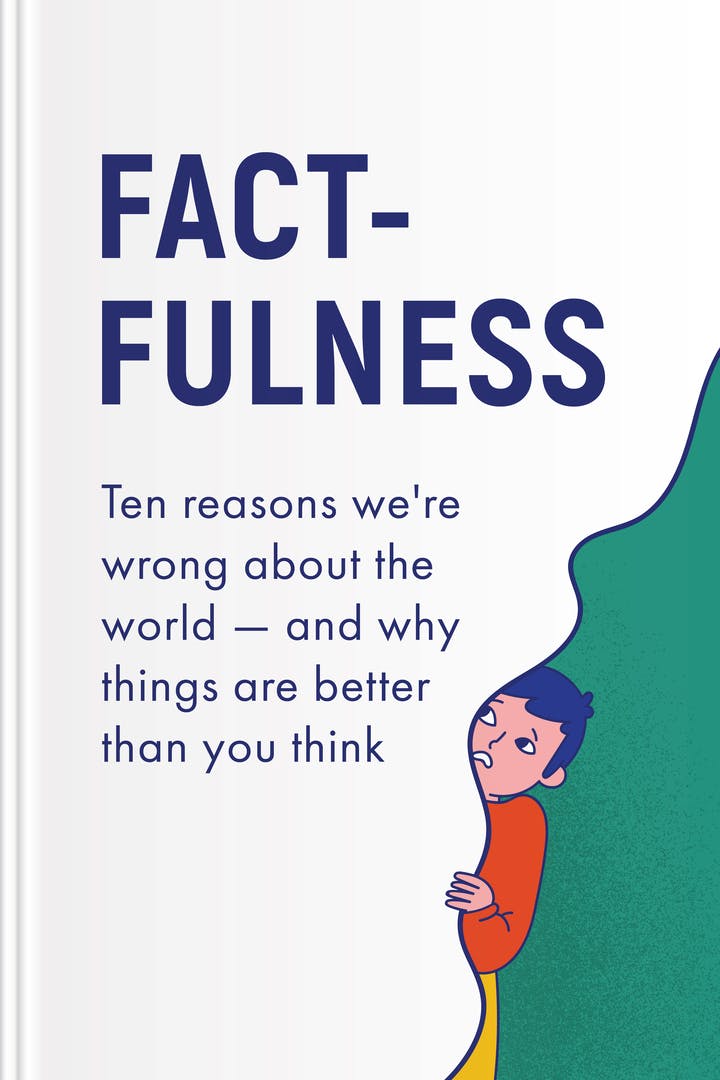 8
8Factfulness
by Hans Rosling, Anna Rosling Rönnlund, Ola Rosling
What is Factfulness about?
"Factfulness" challenges common misconceptions about the state of the world by presenting ten reasons why our understanding is often flawed. Drawing on extensive data and personal experiences, the authors argue that despite prevailing negativity, global progress has been significant. They provide a refreshing perspective on topics such as poverty, education, and health, urging readers to adopt a fact-based worldview and embrace a more optimistic outlook on the future.
Who should read Factfulness
Students and educators seeking a fresh perspective on global issues.
Individuals interested in challenging their preconceived notions about the world.
Policy makers and leaders looking for evidence-based insights on progress.
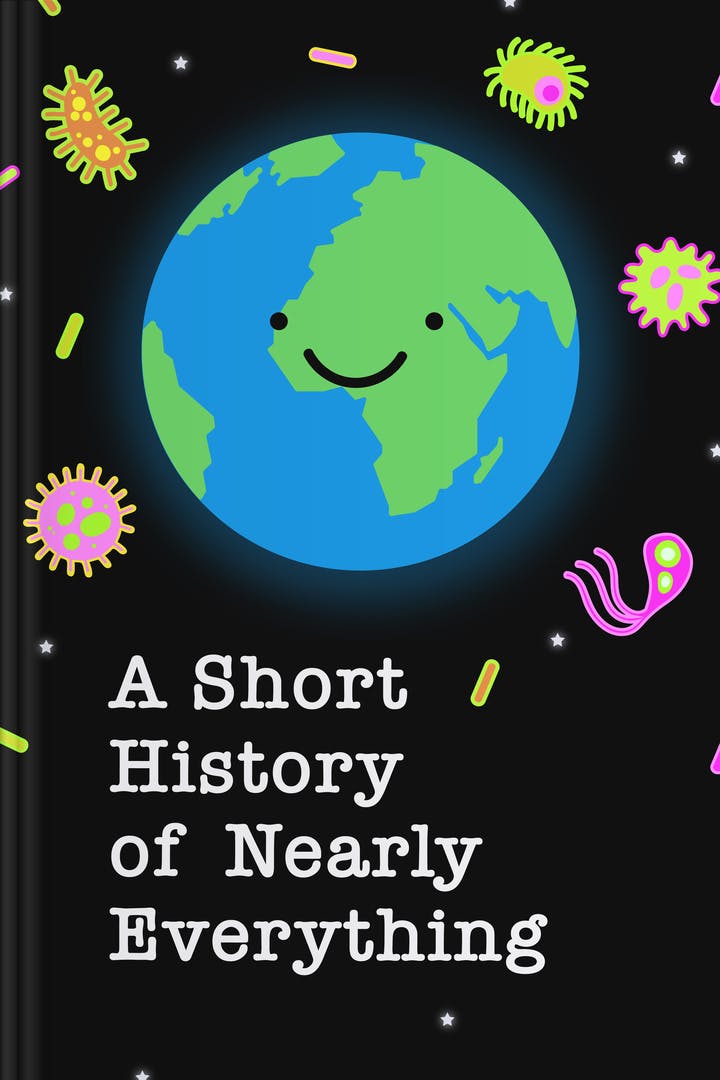 9
9A Short History of Nearly Everything
by Bill Bryson
What is A Short History of Nearly Everything about?
"A Short History of Nearly Everything" is a captivating exploration of the scientific discoveries that have shaped our understanding of the world. Written by a renowned author, this book takes readers on a journey through time, unraveling the mysteries of the universe, the origins of life, and the fascinating stories of the scientists who made groundbreaking contributions. With wit and clarity, it presents complex concepts in an accessible manner, making it a must-read for anyone curious about the wonders of our existence.
Who should read A Short History of Nearly Everything
Science enthusiasts seeking a comprehensive and engaging overview of the universe.
Curious individuals eager to explore the wonders of our world.
Students and educators looking for an accessible science reference book.
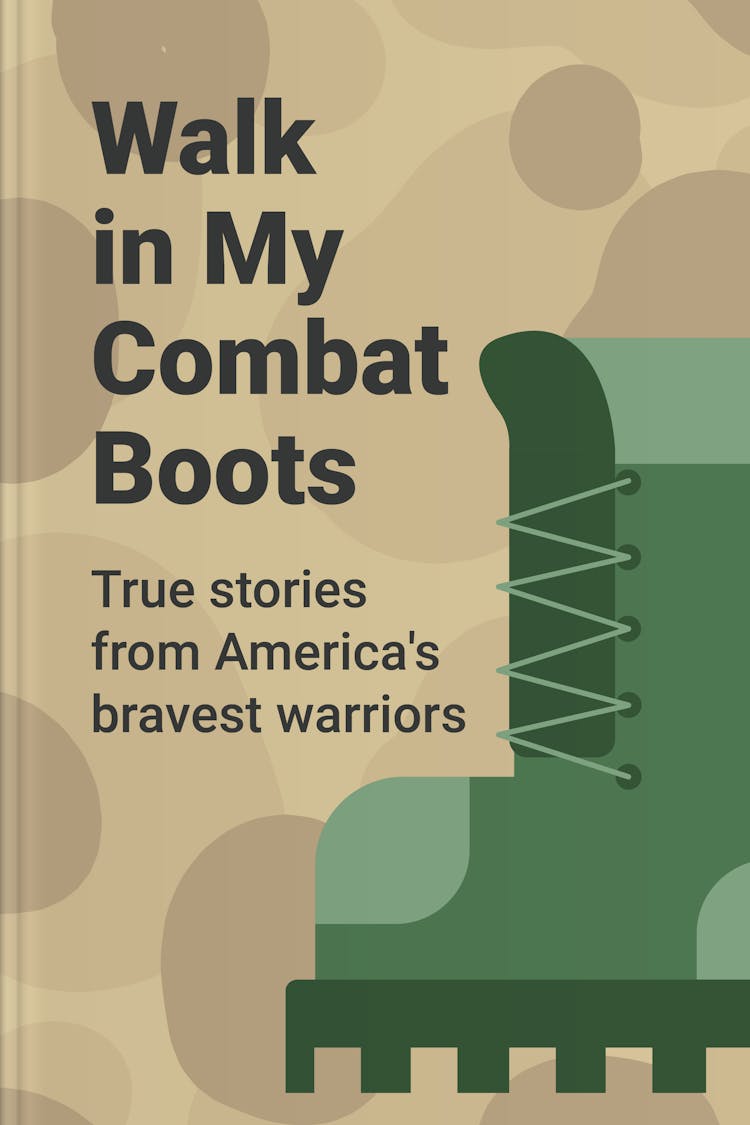 10
10Walk in My Combat Boots
by James Patterson, Matt Eversmann, and Chris Mooney
What is Walk in My Combat Boots about?
"Walk in My Combat Boots" is a gripping collection of true stories that offers a raw and intimate glimpse into the lives of American soldiers. Written by James Patterson, Matt Eversmann, and Chris Mooney, this book takes readers on a powerful journey through the experiences of those who have served in the military, sharing their triumphs, struggles, and sacrifices on the battlefield and beyond. It is a poignant tribute to the bravery and resilience of our armed forces.
Who should read Walk in My Combat Boots
Military veterans seeking to understand the experiences of fellow soldiers.
History enthusiasts interested in firsthand accounts of combat missions.
Individuals looking to gain insight into the realities of war.
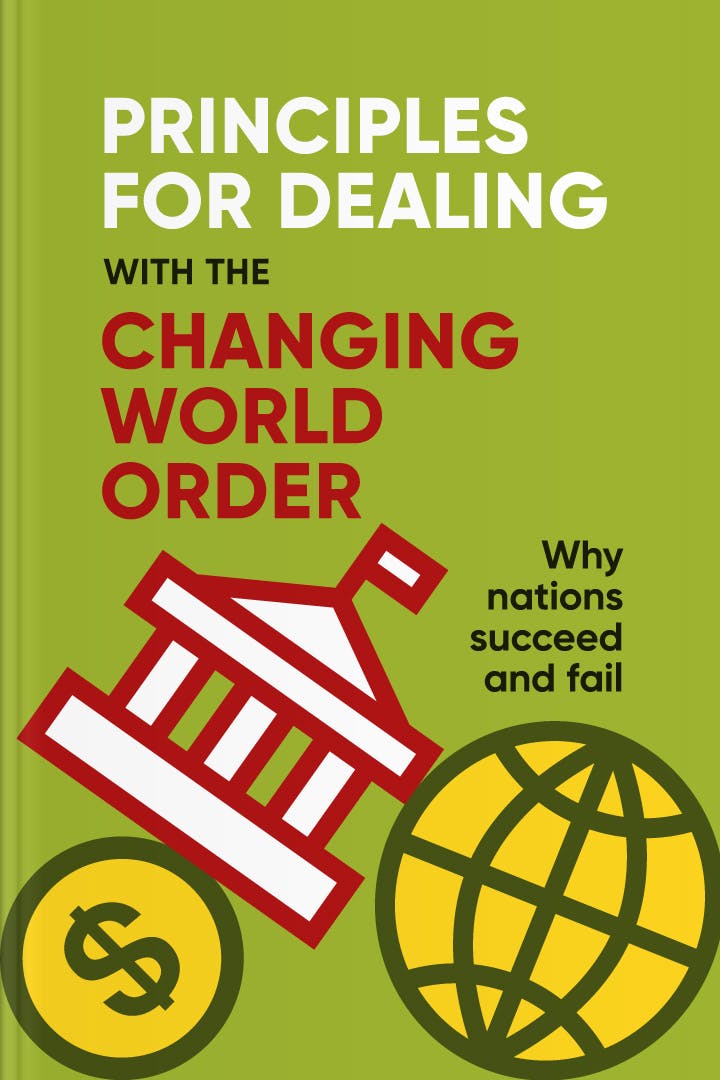 11
11Principles for Dealing with the Changing World Order
by Ray Dalio
What is Principles for Dealing with the Changing World Order about?
In this insightful book, the author delves into the principles that determine the success or failure of nations in the face of a rapidly changing world order. Drawing from his extensive experience in finance and economics, Ray Dalio offers a comprehensive guide to understanding the dynamics of global power shifts and provides valuable insights on how nations can adapt and thrive in an ever-evolving geopolitical landscape.
Who should read Principles for Dealing with the Changing World Order
Global policymakers seeking insights into navigating the evolving world order.
Business leaders aiming to understand the impact of geopolitical shifts.
Students and scholars of international relations and political science.
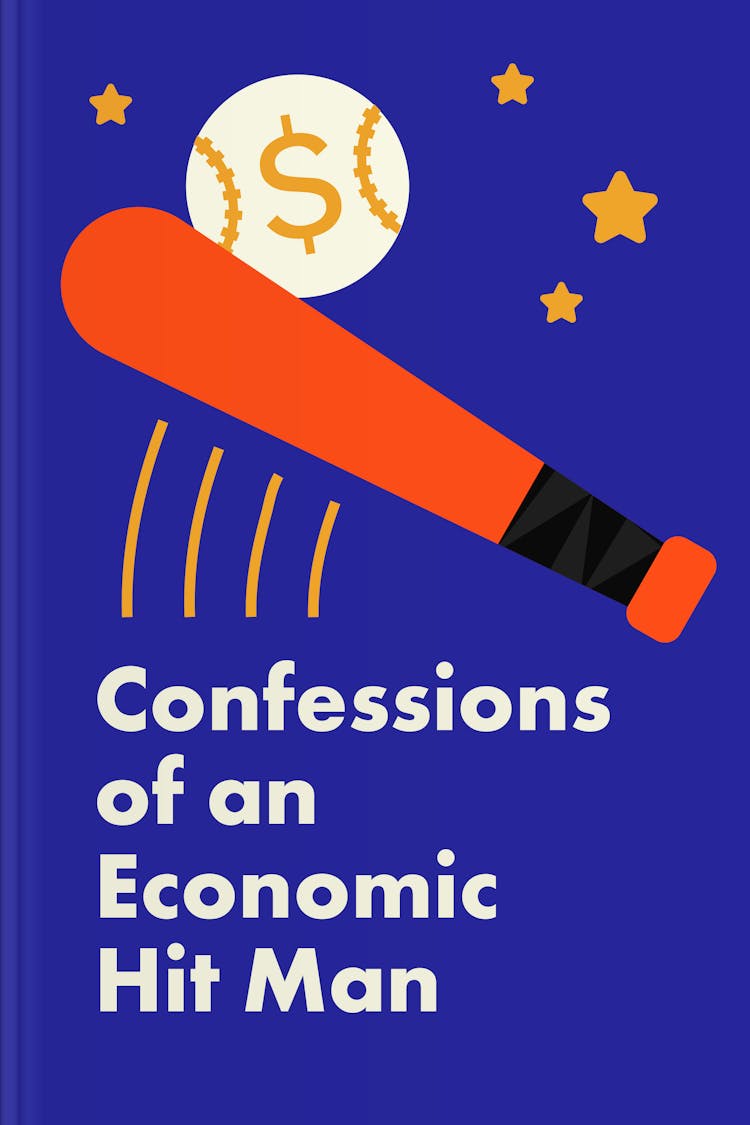 12
12The New Confessions of an Economic Hit Man
by John Perkins
What is The New Confessions of an Economic Hit Man about?
"The New Confessions of an Economic Hit Man" is a gripping memoir that unveils the dark underbelly of global economics. Written by a former insider, the book exposes the clandestine world of economic hit men who manipulate governments and exploit developing nations for the benefit of corporations and the elite. With shocking revelations and personal anecdotes, the author sheds light on the destructive forces that shape our world and offers a call to action for a more just and sustainable future.
Who should read The New Confessions of an Economic Hit Man
Economists and policymakers seeking insights into global economic manipulation.
Activists and social justice advocates interested in exposing corporate corruption.
Individuals curious about the hidden forces shaping our world economy.
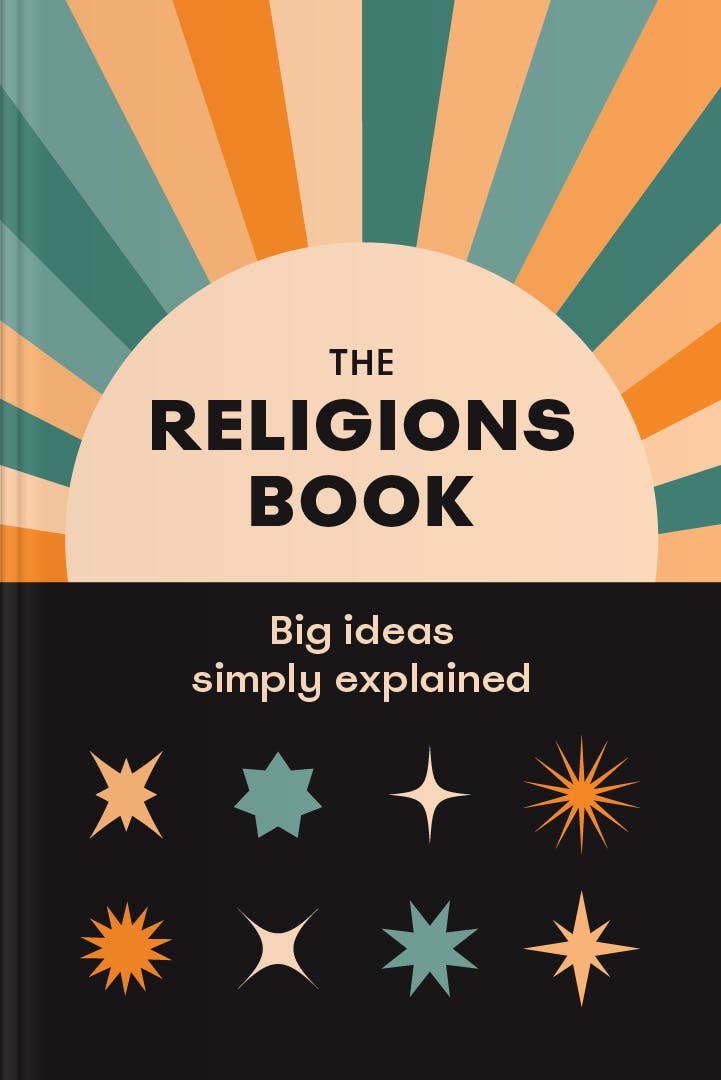 13
13The Religions Book
by DK & Neil Philip
What is The Religions Book about?
"The Religions Book: Big Ideas Simply Explained" is a comprehensive guide that explores the major religions of the world, their beliefs, practices, and historical significance. With clear and concise explanations, accompanied by stunning visuals, this book offers a fascinating journey through the diverse and complex world of religious traditions. From ancient rituals to modern interpretations, it provides a valuable resource for anyone seeking to understand the fundamental concepts and philosophies that shape our global religious landscape.
Who should read The Religions Book
Students and scholars seeking a comprehensive overview of world religions.
Individuals interested in exploring the fundamental concepts of different faiths.
Readers looking for a concise and accessible introduction to religious beliefs.
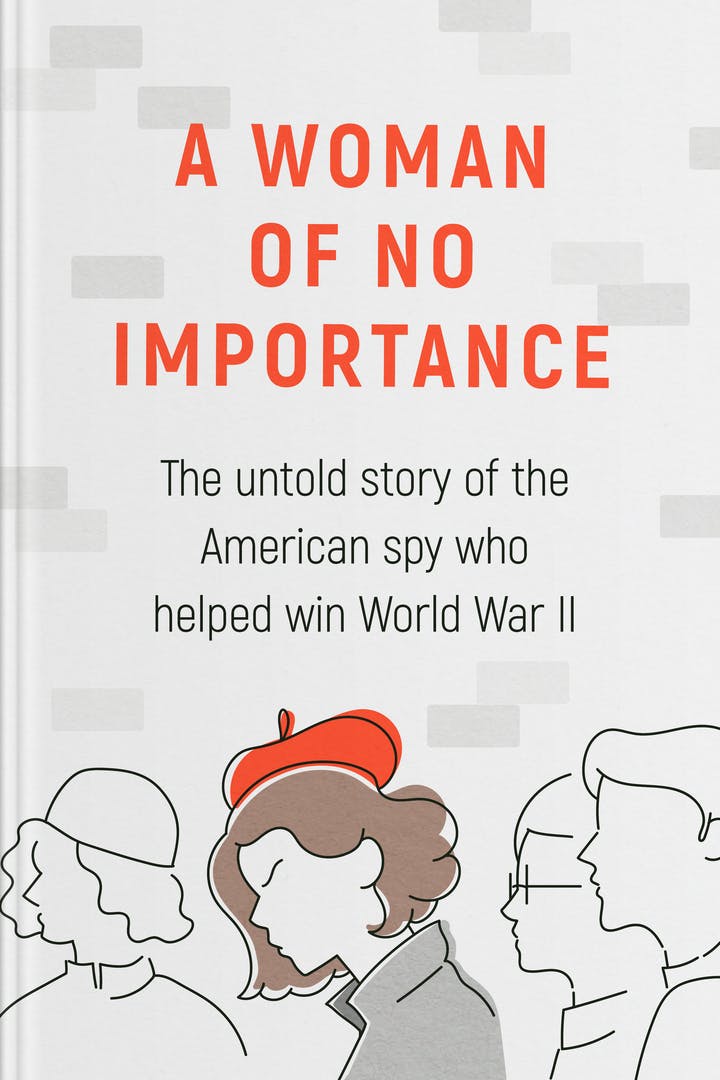 14
14A Woman of No Importance
by Sonia Purnell
What is A Woman of No Importance about?
This gripping non-fiction book unveils the remarkable untold story of an American spy who played a pivotal role in the Allied victory during World War II. Through meticulous research, Sonia Purnell brings to light the extraordinary life of this courageous woman, highlighting her intelligence, bravery, and determination as she navigates the treacherous world of espionage. A Woman of No Importance is a captivating account of a forgotten hero whose contributions shaped history.
Who should read A Woman of No Importance
History enthusiasts interested in the untold stories of World War II.
Feminists seeking to learn about the contributions of women in war.
Spy thriller fans intrigued by real-life espionage narratives.
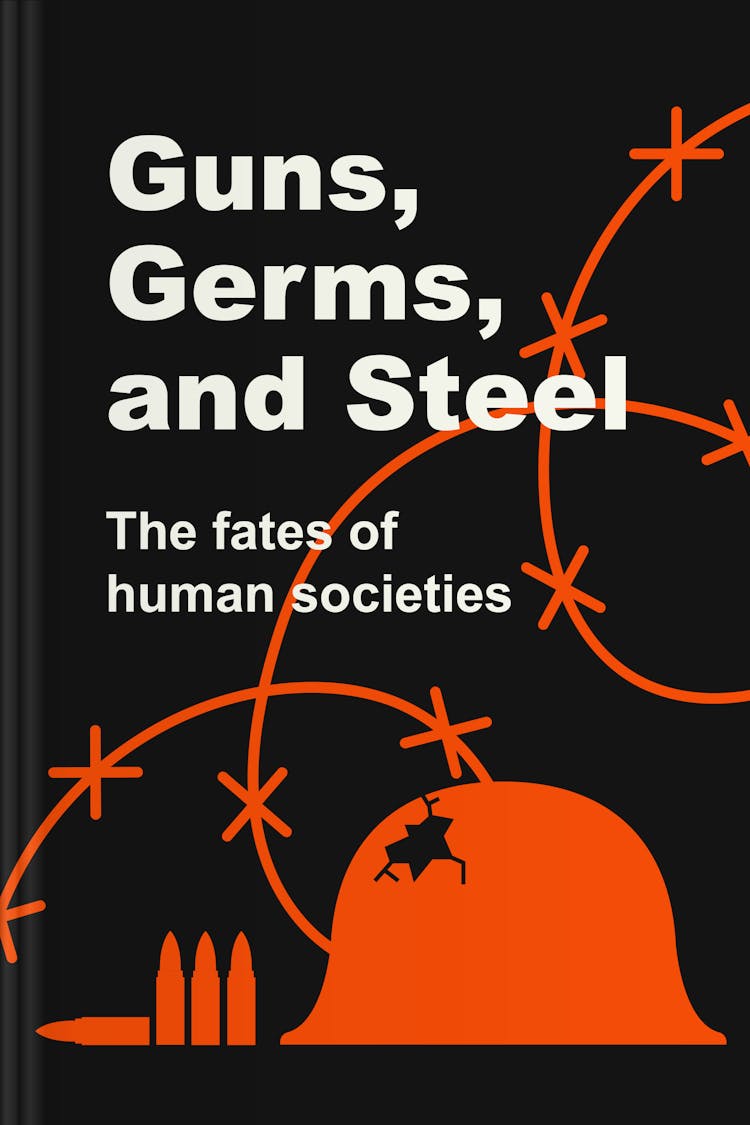 15
15Guns, Germs, and Steel
by Jared Diamond
What is Guns, Germs, and Steel about?
In this thought-provoking book, the author explores the factors that have shaped the destinies of different human societies throughout history. From the impact of geographical advantages to the spread of deadly diseases, Diamond delves into the complex interplay of guns, germs, and steel that have determined the rise and fall of civilizations. With a multidisciplinary approach, this book offers a compelling analysis of why some societies have thrived while others have faltered.
Who should read Guns, Germs, and Steel
History enthusiasts seeking a comprehensive understanding of human civilization.
Anthropology students exploring the factors shaping societies throughout history.
Global citizens interested in the origins of inequality and cultural development.
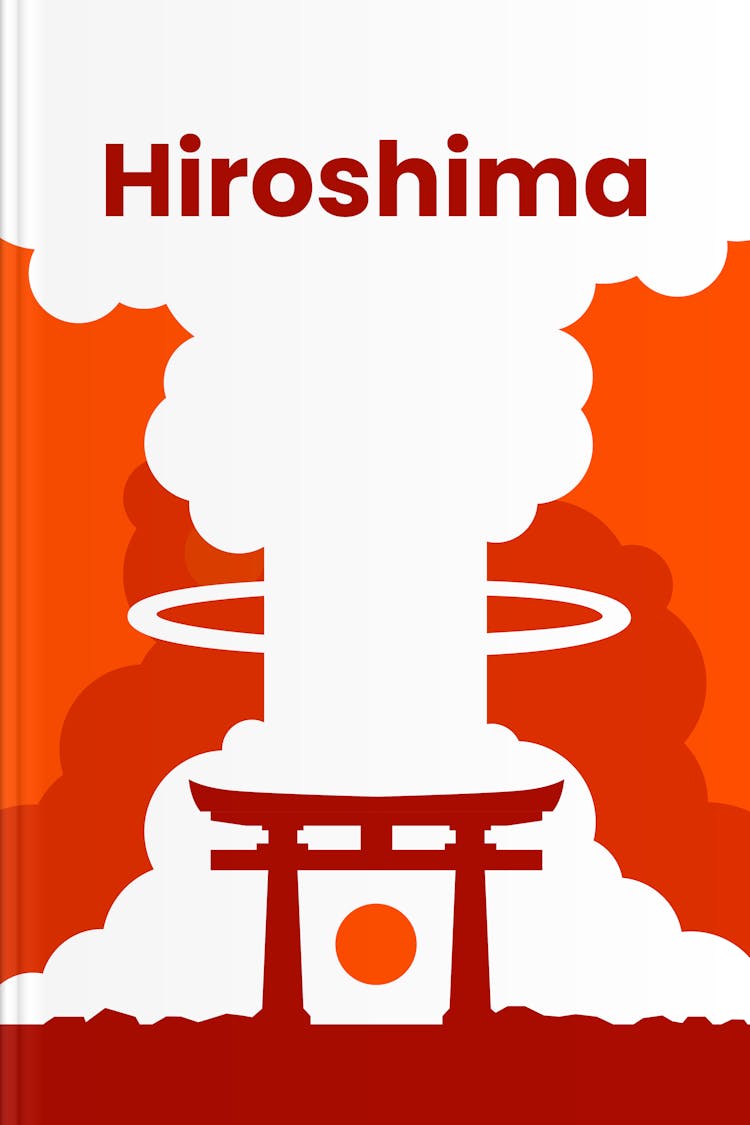 16
16Hiroshima
by John Hersey
What is Hiroshima about?
"Hiroshima" by John Hersey is a powerful and haunting account of the devastating aftermath of the atomic bomb dropped on Hiroshima during World War II. Through the stories of six survivors, Hersey vividly portrays the horrors and human suffering caused by the bomb, while also exploring themes of resilience, survival, and the long-lasting impact of war. This gripping narrative sheds light on one of the darkest moments in history, leaving readers with a profound understanding of the human cost of nuclear warfare.
Who should read Hiroshima
History enthusiasts interested in understanding the impact of the atomic bomb.
Students studying World War II and its aftermath.
Individuals seeking a firsthand account of the Hiroshima bombing.
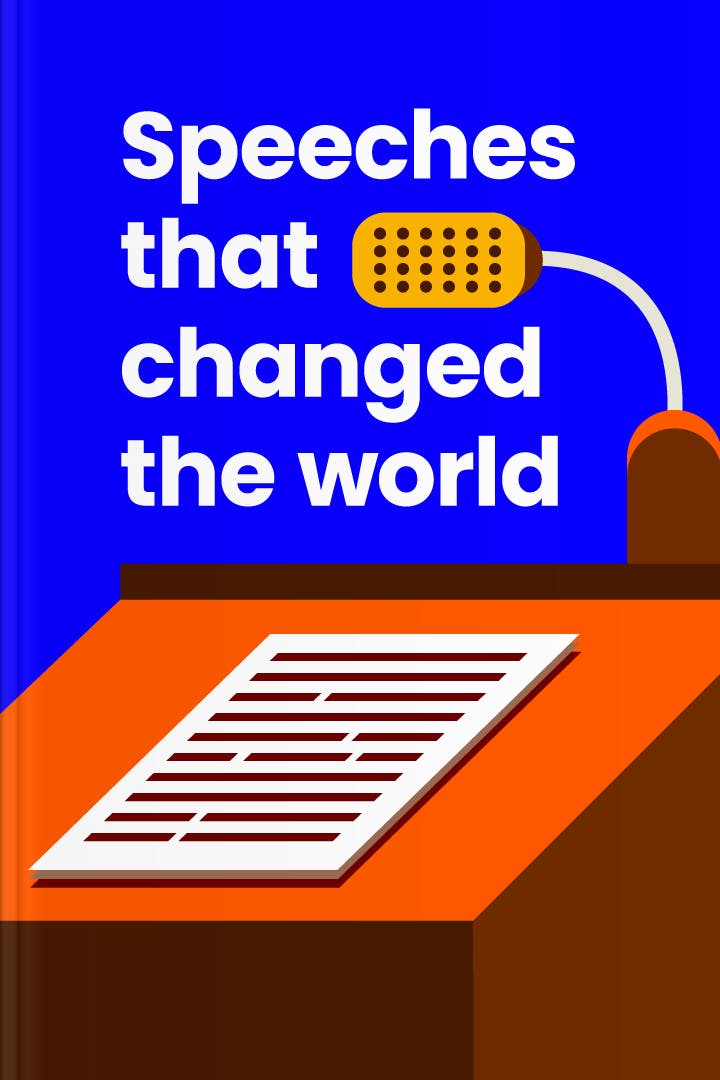 17
17Speeches That Changed the World
by Simon Sebag Montefiore
What is Speeches That Changed the World about?
"Speeches That Changed the World" is a captivating collection of powerful speeches that have shaped history and influenced societies. Written by an acclaimed author, this book delves into the profound impact of speeches delivered by influential figures throughout time. From political leaders to activists, these speeches have ignited revolutions, inspired change, and left an indelible mark on humanity. With insightful analysis and historical context, this book offers a compelling exploration of the transformative power of words.
Who should read Speeches That Changed the World
History enthusiasts seeking to explore influential speeches throughout time.
Students of political science and communication interested in impactful oratory.
Individuals looking for inspiration from powerful speeches that shaped history.
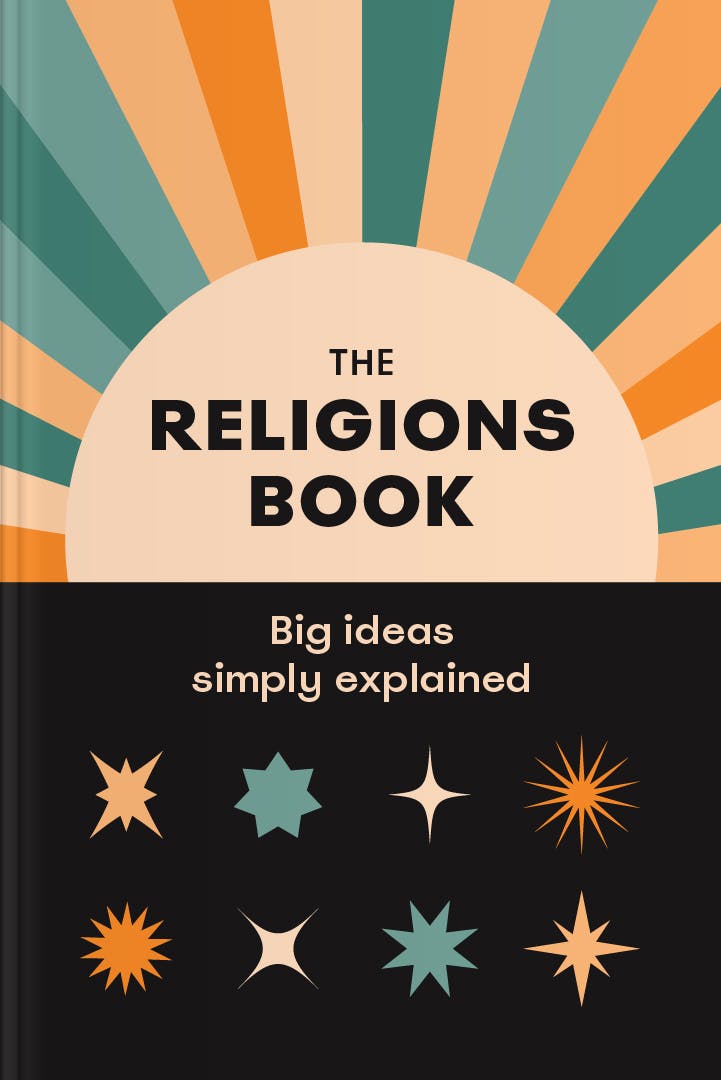 18
18The Religions Book
by Shulamit Ambalu, Michael D. Coogan, Eve Levavi Feinstein, Paul Freedman, Neil Philip, Andrew Stob
What is The Religions Book about?
"The Religions Book: Big Ideas Simply Explained" is a comprehensive guide that explores the major religions of the world, providing a clear and concise overview of their beliefs, practices, and historical significance. Written by a team of experts, this book presents complex religious concepts in an accessible manner, making it an invaluable resource for anyone seeking to understand the diverse and fascinating world of religion.
Who should read The Religions Book
Students studying world religions seeking a comprehensive and accessible guide.
Individuals curious about different religious beliefs and practices.
Readers interested in exploring the historical and cultural impact of religions.
